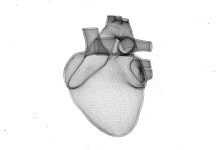Dr Ghazala Aziz-Scott, a specialist in Women’s health at The Marion Gluck Clinic, explores how Premature Ovarian Insufficiency (POI) can affect working women and how they can discuss this problem with their employer
Unfortunately, Premature Ovarian Insufficiency (POI) is a condition which isn’t widely talked about, despite its prevalence. It is estimated that POI occurs in around 1 in 100 women under the age of 40, 1 in 1000 women under the age of 30 and 1 in 10,000 women under the age of 20. There are far-reaching physical and emotional consequences for sufferers of POI. The condition can result in a lower quality of life, impacting sexuality, mental and cognitive health, fertility, bone health and cardiovascular health.
More than ever, women are a valuable and vital asset to the workforce, but the reality is our behaviour is driven by our hormones and we have to navigate that rollercoaster from puberty, motherhood and then menopause. The journey is often unpredictable but especially when the menopausal period is brought forward bringing different issues that need support into the spotlight. Education for employers, women and men is key about the impact of women’s hormones and how workplace culture needs to adapt to celebrate diversity, inclusivity and bridge the gender gap.
POI results in decreased sex hormone production as ovulation is brought to a halt. Sex hormones (estrogen, progesterone and testosterone) are crucial to our health and this cannot be emphasised enough. Often the cause of POI is unknown or genetic but it can be a cruel side effect of gynaecological surgery, particularly endometrial or ovarian cancer. Other cancer treatments such as chemotherapy or pelvic radiation are also implicated. There is a link of POI with diabetes, thyroid conditions, and autoimmune disorders so superimposing this on pre-existing health challenges is a double blow. Both underdiagnosis and misdiagnosis of POI is common and 25% of women say their diagnosis took more than 5 years and 50% or more will see three or more specialists before diagnosis – is it a wonder it creates so much angst?
So what are the classic symptoms of POI?
- Hot flushes and night sweats causing disrupted and poor quality sleep
- Psychological disturbances such as depression and anxiety, feelings of low self -esteem and inadequacy, feeling less feminine and concerns about fertility
- Loss of concentration or focus, “brain fog”, memory loss, decreased work performance
- Low libido- testosterone levels decrease more abruptly so a marked feature in POI
- Insomnia causing irritability and fatigue as progesterone is our natural sedative
- Muscle and joint stiffness, generalised aches and pains as estrogen is our natural anti-inflammatory
- Weight gain, dry skin and hair changes affecting self-confidence
- Recurrent cystitis and stress incontinence
- Irregular or erratic cycles which can be heavy
It is important to note that 25 % of women with POI do not experience these symptoms initially as their younger physiology can compensate but may at a later stage. Due to health issues and other conditions associated with POI, the average life expectancy of a woman with POI is 2 years less. The immediate threats to this younger group of women are mental health, fertility, and sexual functioning which impacts their relationships and well-being. Immediate support and focus is paramount to effective care.
Addressing the stigma of menopause in society and women themselves feeling it is a taboo subject is a fundamental but symbiotic shift. Women need to empower and be empowered. How can this translate into the workplace so we can optimise the necessary support and create a culture of ‘menopause dignity’? There needs to be a greater sensitivity with POI as these women bear a greater psychological burden with other underlying health conditions and the big fertility issue. They may also be at a time where they are developing their careers, feel they need to prove themselves, and have economic and family pressures which the older menopausal women is beyond. In summary, the needs of women with POI are complex and different and employers may not link menopause with their younger employees, who are suffering in silence. It is recognised that open communication and changes to the working environment can go far in reducing the impact of someone’s symptoms.
Employers have a corporate social responsibility to formulate HR policies and practices to support menopause and POI in the workplace. Every manager and employer should have access to high-quality information and education about menopause and POI issues to enable appropriate support of their teams. This ensures menopause gets the same understanding as any other health issue which will boost morale, retain valuable skills and talent and reduce sickness absence. Good communication skills such as sensitivity, empathy, active listening and non-judgement will encourage women to talk with honesty. Open communication must be facilitated with conversations about relevant issues to break down barriers so gauging and promoting awareness.
Performance must be managed proactively and positively with attention paid to the root cause if there appears to be a problem. The approach should be positive and supportive, taking into account underlying health conditions. Extra support and coaching can then be identified and reasonable time scales for improvement can be set. Regular informal dialogue will build trust and improve resilience.
Employers have a legal duty to ensure proper working conditions and remove discriminatory barriers to progression for women. Organisations such as CIPD and ACAS provide guidelines and resources on how to develop menopause policy in the workplace.
Psychological issues are prevalent in POI, and women must be empowered to discuss concerns with their line manager so adjustments can be made to work duties causing a particular challenge. Some companies have employed a menopause or wellbeing champion for this purpose so women can be directed to relevant counselling services and seek medical advice. Women with POI must be seen in a specialist clinic and ideally offered bioidentical hormone replacement therapy tailored to their needs, holistic support for immediate problems such as sexual dysfunction and monitoring of long term health conditions such as DEXA bone scans to assess osteoporosis risk. POI women might need time off for fertility treatments such as IVF and egg donation which can be extremely stressful and there is no guarantee of success for the amount of emotional and financial investment pumped in. The Daisy Network is a charity dedicated to providing information and support for POI.

Employers must identify reasonable adjustments that can create an inclusive space for women and there must be capacity for risk assessment for each individual employee. Easy access to washrooms and sanitary products should be considered. Changes such as moving a desk to the window, ensuring ergonomics of the workspace, providing fans, cool drinking water and regular rest breaks are a welcome relief for problematic symptoms and engender goodwill. Flexible working patterns are important such as part-time working and surely the ability to work from home rather than taking a day off is a better solution to workplace productivity. There has been a huge culture shift in working from home due to the current pandemic. Zoom has boomed! We have been positively coerced into making productive work arrangements and the benefits and possibilities in our digital age are vast.
Women comprise 50% of the UK workforce represented in all sectors and at all levels including top executive and governmental positions – indeed the country voted as having the best response to the coronavirus pandemic has Jacinda Ardern, the youngest female prime minister at its helm! What a role model for the world. A 21st-century environment should be inclusive to both sexes and enable us to rightfully thrive in the workplace and community.











